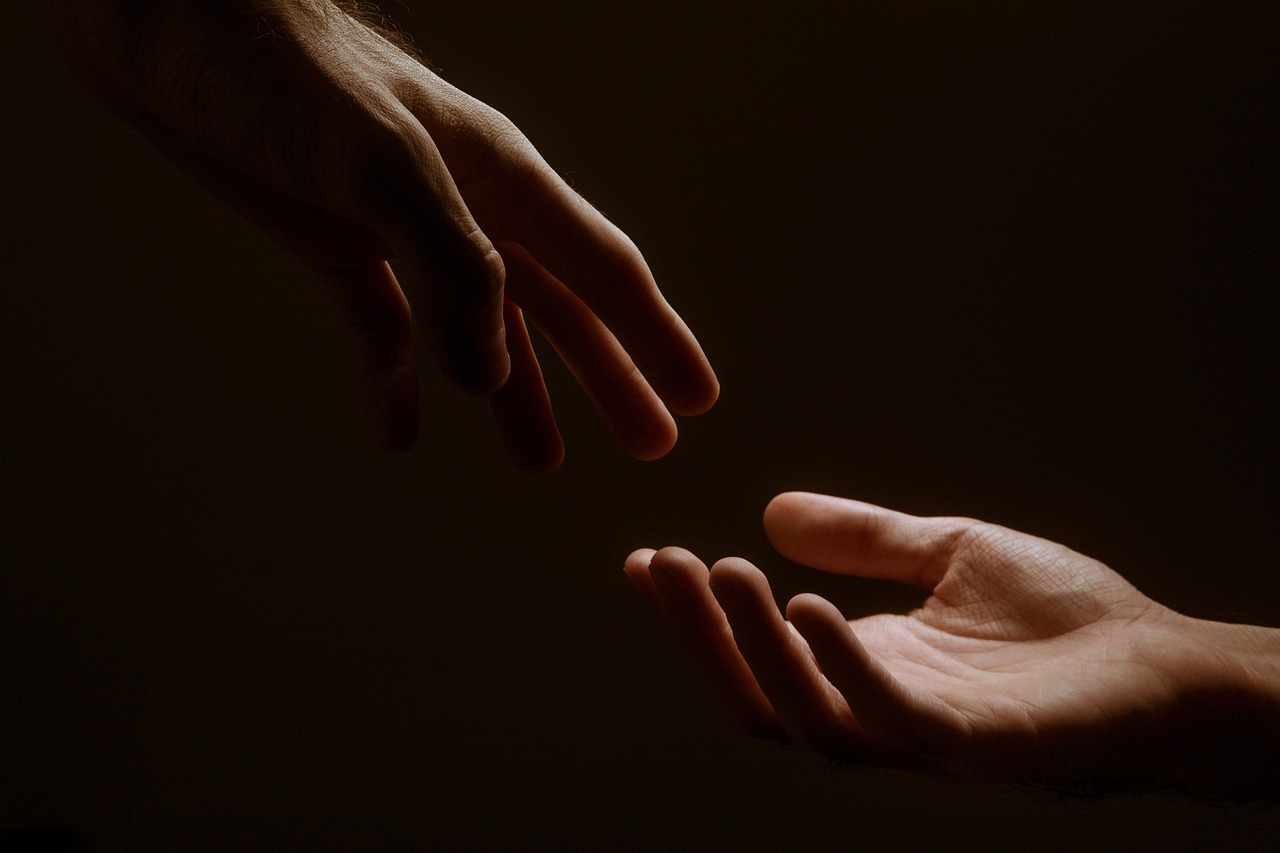Sustainable Tourism Strategies for Visiting India’s Jaipur
When exploring the vibrant city of Jaipur in India, it is crucial to adopt sustainable tourism strategies that not only enhance the visitor experience but also contribute to the long-term preservation of this cultural gem. From community engagement initiatives to eco-friendly accommodation options, Jaipur offers a plethora of opportunities for travelers to engage responsibly with the local environment and heritage.

Importance of Sustainable Tourism
Sustainable tourism plays a crucial role in preserving the rich cultural heritage and natural beauty of Jaipur. By implementing sustainable practices, we not only protect the environment but also ensure that future generations can continue to enjoy the wonders of this historic city. Imagine a Jaipur where the majestic forts, vibrant markets, and traditional arts are all well-preserved for years to come, welcoming visitors from around the world with their authenticity intact.

Community Engagement Initiatives
Community engagement initiatives play a pivotal role in fostering sustainable tourism practices in Jaipur. By involving local communities in tourism development, these initiatives empower residents and create a sense of ownership over their cultural and natural heritage. One effective approach is the establishment of community-based tourism projects that directly involve locals in providing authentic experiences for visitors. These initiatives not only generate income for community members but also promote cultural exchange and mutual understanding.
Furthermore, community engagement programs in Jaipur often focus on capacity building and skill development for residents involved in the tourism sector. By providing training opportunities in hospitality, guiding, and handicrafts, these initiatives enable locals to enhance their livelihoods while preserving traditional skills and knowledge. Through partnerships with local organizations and government agencies, community engagement initiatives contribute to the overall socio-economic development of Jaipur's communities.

Conservation of Historical Sites
When it comes to sustainable tourism in Jaipur, the conservation of historical sites plays a pivotal role in preserving the city's rich cultural heritage and maintaining its allure for future generations. Jaipur, known for its magnificent palaces, forts, and temples, holds a treasure trove of historical landmarks that require careful preservation and responsible management to ensure their longevity.
Efforts in the conservation of historical sites in Jaipur focus on implementing strategies that balance tourism activities with the need to protect these iconic structures from degradation and overuse. This delicate balance involves meticulous planning, restoration work, and ongoing maintenance to safeguard the authenticity and integrity of these architectural marvels.
One approach to conserving historical sites in Jaipur is through the establishment of strict guidelines for visitor behavior and site management. By regulating visitor access, controlling foot traffic, and limiting certain activities within these sites, authorities can mitigate the impact of tourism on the structural stability and historical significance of these landmarks.
Collaboration between heritage conservation experts, local communities, and government agencies is essential in ensuring the sustainable preservation of Jaipur's historical sites. By involving stakeholders in decision-making processes and encouraging community participation in conservation efforts, a sense of ownership and responsibility is fostered among the local population, leading to a shared commitment to safeguarding these cultural treasures.
Furthermore, incorporating innovative technologies and sustainable practices in the maintenance and restoration of historical sites can contribute to their long-term preservation. From eco-friendly construction materials to energy-efficient lighting solutions, embracing modern advancements while respecting traditional craftsmanship is key to ensuring the sustainability of these architectural wonders.
In conclusion, the conservation of historical sites in Jaipur is not just about maintaining physical structures; it is about preserving the stories, traditions, and legacy embedded in these sites for generations to come. By adopting a holistic approach that combines heritage conservation, community engagement, and sustainable practices, Jaipur can continue to enchant visitors with its timeless charm while safeguarding its historical treasures for the future.

Promotion of Eco-friendly Accommodation
When it comes to promoting eco-friendly accommodation in Jaipur, the city is taking significant strides towards sustainability. By encouraging tourists to choose environmentally conscious lodging options, Jaipur aims to reduce its carbon footprint and preserve its natural beauty for future generations to enjoy. Eco-friendly accommodations not only minimize the negative impact on the environment but also provide a unique and immersive experience for visitors seeking a more sustainable travel experience.
One of the key initiatives in promoting eco-friendly accommodation in Jaipur is the certification of hotels and guesthouses that adhere to sustainable practices. These establishments implement energy-saving measures, water conservation techniques, and waste management strategies to minimize their environmental impact. By staying at these certified accommodations, tourists can actively support sustainability efforts while enjoying a comfortable and responsible stay in Jaipur.
Furthermore, Jaipur promotes eco-friendly accommodation through awareness campaigns and educational programs aimed at informing tourists about the benefits of choosing sustainable lodging options. By raising awareness about the importance of eco-friendly practices in the hospitality industry, Jaipur encourages visitors to make informed choices that align with their values of environmental conservation and responsible travel.
In addition to promoting eco-friendly accommodation choices, Jaipur also emphasizes the use of locally sourced and organic materials in the construction and design of lodging facilities. By supporting local artisans and businesses, the city boosts the economy and promotes sustainable practices within the tourism sector. Tourists staying at eco-friendly accommodations in Jaipur can experience the authentic culture and craftsmanship of the region while contributing to the preservation of traditional skills and heritage.
Overall, the promotion of eco-friendly accommodation in Jaipur reflects a commitment to sustainable tourism practices that benefit both the environment and the local community. By choosing eco-conscious lodging options, tourists can actively participate in the preservation of Jaipur's cultural and natural resources, ensuring a more sustainable and enriching travel experience for themselves and future generations.

Cultural Immersion Experiences
Jaipur, known as the Pink City, is a vibrant destination in India that attracts tourists with its rich cultural heritage and historical significance. In this article, we will delve into sustainable tourism strategies that can enhance the travel experience in Jaipur while preserving its charm for future generations.
When it comes to exploring Jaipur, it's crucial to understand the importance of sustainable tourism practices. By adopting eco-friendly approaches, we can protect the city's cultural heritage, reduce environmental impact, and create a positive experience for both visitors and locals.
Community engagement plays a vital role in sustainable tourism development in Jaipur. Initiatives that involve and empower local residents not only benefit the community but also create a sense of ownership and pride in preserving the city's authenticity.
Preserving Jaipur's historical sites is essential for maintaining its unique identity and attracting visitors interested in its rich past. Responsible management strategies ensure that these landmarks are protected for future generations to appreciate and enjoy.
Choosing eco-friendly lodging options can significantly contribute to sustainable tourism in Jaipur. By supporting accommodations that prioritize environmental conservation, tourists can minimize their carbon footprint and contribute to the city's sustainability efforts.
Immersive cultural experiences offer visitors a deeper understanding of Jaipur's traditions and customs. By engaging in local activities, participating in traditional ceremonies, and interacting with residents, tourists can foster cross-cultural appreciation and respect.
Effective waste management is crucial for maintaining cleanliness and preserving Jaipur's natural beauty. Implementing sustainable practices, such as recycling programs and proper disposal methods, can help reduce environmental impact and enhance the overall tourism experience.
Opting for sustainable transportation options while exploring Jaipur is key to reducing carbon emissions and alleviating traffic congestion. From using public transport to promoting cycling tours, sustainable transportation initiatives aim to enhance accessibility for tourists while minimizing environmental harm.
Supporting local artisans and craftsmen is a fundamental aspect of sustainable tourism in Jaipur. By purchasing ethically sourced souvenirs and promoting traditional skills, visitors can contribute to the preservation of cultural heritage and empower local communities.
Educational programs and awareness campaigns play a crucial role in promoting responsible tourism behavior among visitors to Jaipur. By raising awareness about sustainable practices and cultural sensitivity, these initiatives help create a more conscious and environmentally friendly travel culture.
Stay tuned for our frequently asked questions section to find answers to common queries about sustainable tourism in Jaipur and how you can make a positive impact during your visit.

Waste Management Practices
Waste management practices play a crucial role in ensuring the sustainability of tourism in Jaipur. With the increasing number of visitors, the city faces challenges in managing waste effectively to minimize environmental impact and maintain cleanliness. Various initiatives have been implemented to address this issue, ranging from waste segregation at the source to recycling and proper disposal methods.
One key strategy involves raising awareness among tourists and local communities about the importance of responsible waste management. Educational campaigns and signage in popular tourist areas can help encourage proper disposal of waste materials. Additionally, partnerships with local waste management companies and NGOs ensure that collected waste is processed in an environmentally friendly manner.
Implementing waste reduction measures is also essential in minimizing the overall waste generated by tourism activities. Encouraging the use of reusable items, such as water bottles and shopping bags, can significantly reduce the amount of single-use plastic waste. Furthermore, promoting sustainable practices in hotels and restaurants, such as composting organic waste and using biodegradable packaging, contributes to a more eco-friendly tourism industry.
Collaboration between the government, private sector, and local communities is vital in establishing effective waste management systems. By involving stakeholders at all levels, Jaipur can develop comprehensive strategies that address the specific waste management needs of different tourism sites and ensure long-term sustainability.

Transportation Sustainability
When it comes to sustainable tourism in Jaipur, transportation plays a crucial role in ensuring environmental conservation and reducing the carbon footprint of visitors. Implementing transportation sustainability measures not only benefits the local ecosystem but also enhances the overall travel experience for tourists.
One of the key strategies for transportation sustainability in Jaipur is promoting the use of eco-friendly modes of transport such as electric vehicles, bicycles, and public transportation. By encouraging visitors to opt for these green alternatives, the city can significantly reduce air pollution and traffic congestion, creating a more pleasant and sustainable environment for all.
Additionally, investing in efficient transportation infrastructure, including well-connected public transport systems and designated cycling lanes, can improve accessibility for tourists while minimizing the reliance on private vehicles. This not only reduces the environmental impact but also enhances the overall mobility and convenience for visitors exploring Jaipur.
Furthermore, raising awareness among tourists about the importance of sustainable transportation practices through educational campaigns and information centers can encourage responsible travel behavior. By highlighting the benefits of choosing eco-friendly transportation options, visitors can actively contribute to the preservation of Jaipur's cultural heritage and natural beauty.
Incorporating sustainable transportation practices into the overall tourism strategy of Jaipur is essential for promoting a harmonious relationship between visitors and the environment. By prioritizing transportation sustainability, Jaipur can pave the way for a more eco-conscious and enjoyable travel experience for all.

Local Artisan Support
Supporting local artisans in Jaipur is not just a noble endeavor but a crucial aspect of sustainable tourism. By engaging with and promoting the work of these talented craftsmen, visitors can contribute to the preservation of traditional skills and cultural heritage. The intricate artistry displayed in Jaipur's handicrafts, textiles, and jewelry reflects centuries-old traditions passed down through generations. By purchasing products directly from local artisans, tourists can ensure fair compensation for their work and help sustain these time-honored crafts.
One way to support local artisans is through creating market linkages that connect them with a wider audience. By facilitating access to markets, both domestic and international, artisans can expand their reach and find new opportunities to showcase their creations. This not only benefits the artisans economically but also promotes Jaipur's unique artistic heritage on a global scale.
Furthermore, initiatives that provide training and capacity building to artisans play a vital role in ensuring the continuity of traditional craftsmanship. By investing in skill development programs, artisans can enhance their techniques, adapt to changing market trends, and preserve their cultural identity. Empowering these artisans not only secures their livelihoods but also fosters a sense of pride and dignity in their work.
Collaborations between local artisans and sustainable tourism operators can also create mutually beneficial partnerships. By incorporating locally-made crafts into tourism experiences, visitors can engage with authentic cultural products while supporting the livelihoods of artisans. This integration of traditional art forms into the tourism sector not only adds value to the visitor experience but also promotes sustainable economic growth within local communities.
Ultimately, supporting local artisans in Jaipur is a testament to the rich cultural tapestry of the region and a commitment to preserving its artistic legacy for future generations. By valuing and promoting the work of these skilled craftsmen, tourists can contribute to the sustainability of Jaipur's cultural heritage while experiencing the beauty and craftsmanship that define this vibrant city.

Education and Awareness Campaigns
Education and awareness campaigns play a crucial role in promoting responsible tourism behavior and fostering a culture of sustainability among visitors to Jaipur. By educating tourists about the local customs, traditions, and environmental challenges, these campaigns aim to create a sense of responsibility and respect towards the destination they are visiting.
One effective way to raise awareness is through interactive workshops and seminars where tourists can learn about the cultural significance of various practices in Jaipur. These sessions not only provide valuable insights but also encourage visitors to actively participate in preserving the local heritage.
Moreover, educational materials such as brochures, guidebooks, and online resources can be distributed to tourists, highlighting the importance of sustainable tourism practices and the impact of their actions on the environment and local communities.
Collaborating with local schools and universities to incorporate sustainable tourism principles into their curriculum can also have a lasting impact on future generations of travelers. By instilling these values early on, young people are more likely to become responsible and conscious tourists in the future.
Furthermore, leveraging social media platforms and digital marketing campaigns can reach a wider audience and spread awareness about sustainable tourism practices in Jaipur. Engaging content, such as videos showcasing community initiatives and success stories, can inspire travelers to make informed choices during their visit.
Ultimately, education and awareness campaigns serve as powerful tools in transforming tourists into ambassadors for sustainable tourism, encouraging them to make ethical decisions that benefit the environment, local communities, and future generations.
Frequently Asked Questions
- What is sustainable tourism?
Sustainable tourism refers to practices that aim to minimize the negative impacts of tourism on the environment, culture, and society while maximizing the benefits for local communities and promoting conservation efforts.
- How does sustainable tourism benefit Jaipur?
Sustainable tourism benefits Jaipur by preserving its cultural heritage, protecting the environment, empowering local communities, and creating a more authentic and enjoyable experience for visitors.
- What are some examples of community engagement initiatives in Jaipur?
Community engagement initiatives in Jaipur may include homestay programs, cultural workshops led by locals, volunteer opportunities, and partnerships with community-based organizations to promote sustainable tourism practices.
- Why is the conservation of historical sites important for sustainable tourism?
Conservation of historical sites in Jaipur is crucial for maintaining the city's identity, attracting tourists interested in history and culture, and ensuring that future generations can continue to enjoy these significant landmarks.
- How can tourists contribute to sustainable tourism in Jaipur?
Tourists can contribute to sustainable tourism in Jaipur by respecting local customs and traditions, supporting eco-friendly accommodations and businesses, minimizing waste generation, and engaging in responsible travel practices.



















